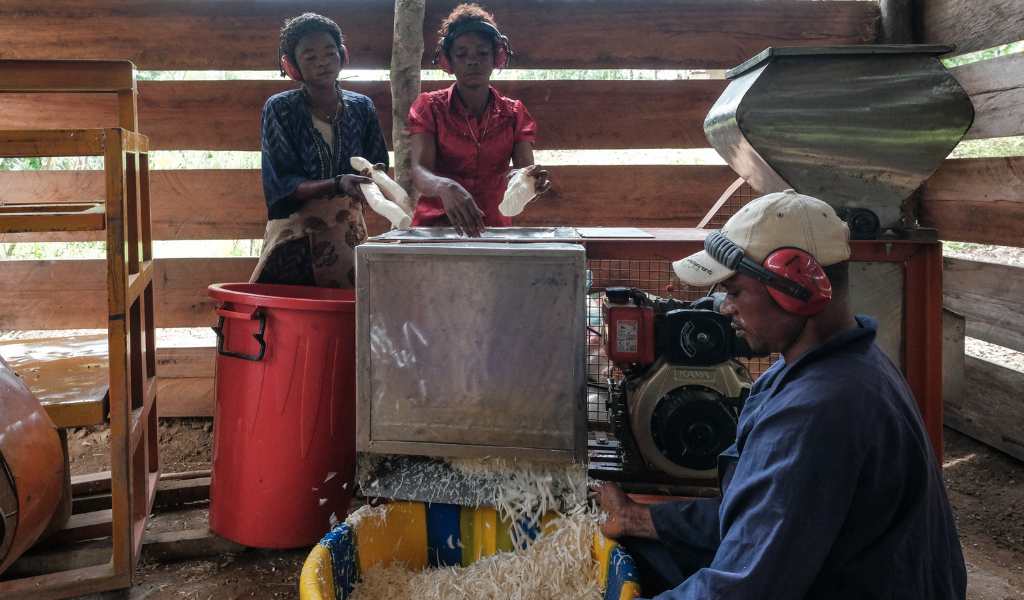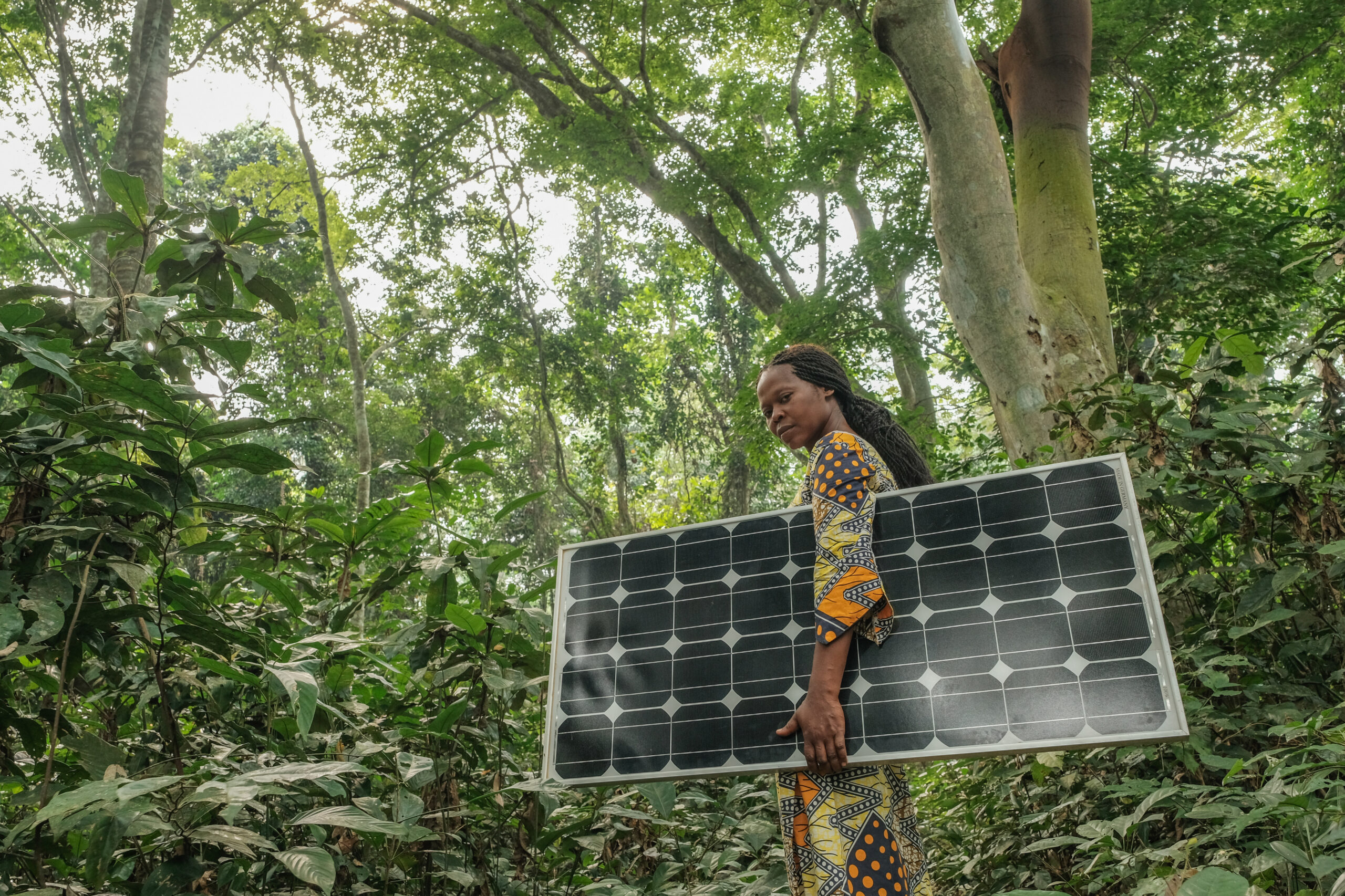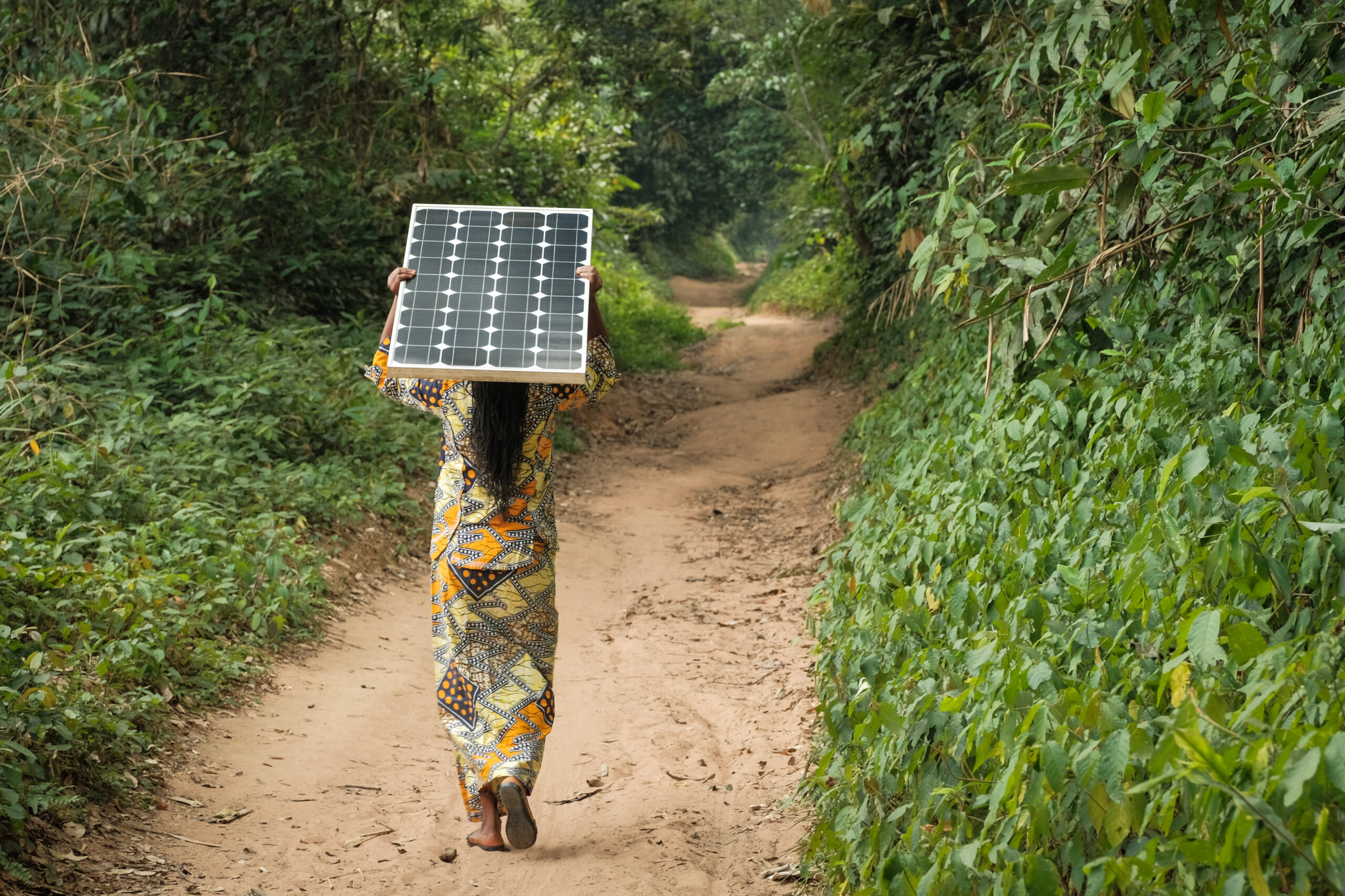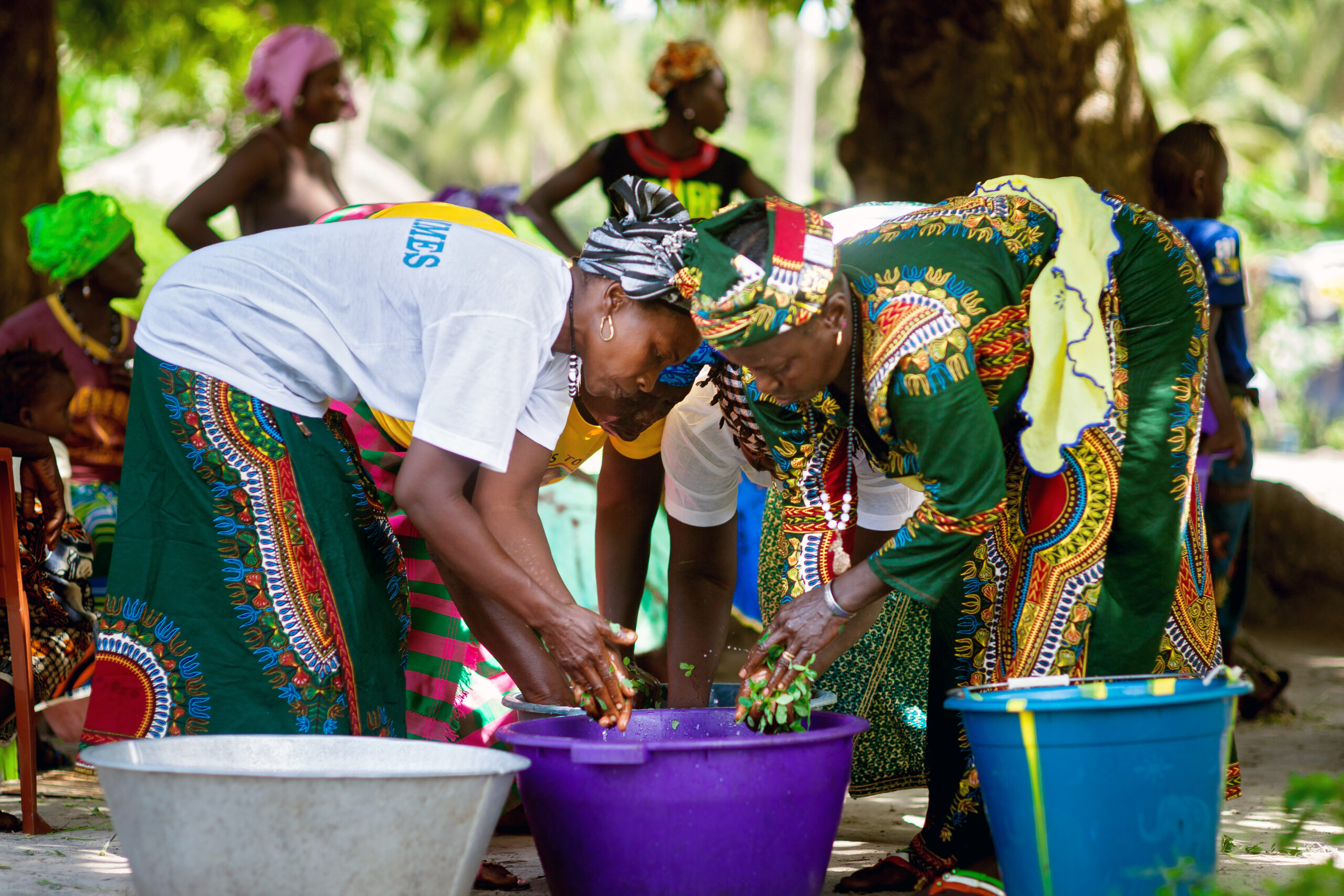'Yangambi Engagement Landscape' by CIFOR via Flickr (CC BY-NC-ND 2.0) https://flic.kr/p/2oeLQqC

Advancing a Just Energy Transition: Empowering Localisation, Decent Work, SMMES, and Sustainable Livelihoods
19 August 2024
The research project titled “A Just Energy Transition: Localisation, Decent Work, SMMEs, and Sustainable Livelihoods” is a vital part of the broader Clean Energy for Development Research Initiative. This ongoing project in Ghana, Kenya, and South Africa, aims to ensure that the transition to renewable energy is equitable and beneficial for all, especially workers, women, local communities and small and medium-sized enterprises (SMMEs).
Understanding the Just Transition
Our project is based on the understanding that a just transition must deliver structural transformation and localisation. Put simply this means increasing the participation of local people in the manufacturing aspects of the sector, ensuring the transfer of knowledge and skills, and involving them in the energy production network. The goal is to maximise the benefits of renewable energy for the local people so that they not monopolised, especially by global, often foreign companies.
A just transition also includes the creation of decent work opportunities. Decent work is characterised by fair wages, job security, and the protection of workers’ rights. Additionally, gender equality is a crucial aspect, focusing on increased participation of women and ensuring their fair treatment in the energy sector. Sustainable livelihoods are another key element, ensuring that decent jobs enable workers to support their families and improve their quality of life.
Localisation and Economic Growth
Kenya, Ghana, and South Africa have promising renewable energy sectors. However, the heavy reliance on imported components and technologies undermines this potential, as most of the wealth and profits generated from this sector find their way in the global north, while localizing the costs of production, including pollution and waste. This unequal and unfair economic relationship, rooted in colonialism, perpetuates Africa’s underdevelopment and limits the localization of benefits from renewable energy projects. Our project aims to redress these enduring and new inequalities by advancing the localisation of renewable energy component production and creating job opportunities within these countries.
By localising the production of renewable energy components, such as solar panels, wind turbines, and gearboxes, we can create jobs for local manufacturers and generate economic growth. This will ensure that the financial benefits of renewable energy projects stay within the local economy, promoting further development. Empirical evidence shows that small-scale entrepreneurs can be powerful drivers of economic growth. Our project encourages local entrepreneurs to participate in the renewable energy value chain, boosting cash flow and economic development at the local level.
Supporting women in the energy sector
Historically, many sectors, including energy, have marginalized women. In many African societies, women are often denied both education and employment opportunities. The accepted role for women is that of a subservient homemaker limited to the domestic domain. Her role in the labour market is limited to reproducing future labour (childbirth) and daily reproduction of the existing male labour (her husband). Most societies adhere to gender stereotyping and condemn any deviation from this status quo, particularly when it involves women. Although women’s marginalization remains deeply rooted in most African societies, women frequently play a critical role in supporting their families, especially during economic downturns. This is especially important in the current context characterised by widespread retrenchments, declining employment opportunities, low pay, insecure, and informal work for the lucky few who can get a job. Still, women face significant barriers to participation in the renewable energy sector. Our project seeks to challenge these inequalities and empower women with the knowledge, skills, and opportunities to participate in and benefit from the renewable energy economy as workers and entrepreneurs. This is critical for ensuring gender equality and enhancing the resilience and sustainability of local economies. Both at the household and workplace level, women bring valuable perspectives and skills to the energy sector, and their involvement is crucial for the success of a just energy transition.
Addressing challenges and risks
Africa has great potential to localise the RE global production network in ways that generate enough power to offset existing deficits across the continent and to develop a renewable manufacturing energy industry to help resolve the continent’s pressing challenges such as unemployment and poverty. Its existing regional integration provides a ready market for the development of the RE manufacturing industry to potentially reduce the overdependence on imports. It also provides opportunities for beneficiation of its abundant mineral resources often exported in raw form and localisation opportunities. However, Africa faces many challenges: poor transmission and distribution infrastructure; lack of finance; the dominance of foreign firms which undermine localisation; differing priorities which hamper a unified push for a just transition; lack of an established market to support the RE manufacturing and the widespread corruption and mismanagement. In addition, there is potential resistance from various stakeholders, including the state and labour groups who benefit from existing economic arrangements, workers, and communities if they are not convinced of the benefits of the transition. For instance, the shift from coal to renewable energy in South Africa involves significant changes in the energy mix, including potential job losses in the coal industry, and failure to generate enough energy to meet the demand which already far outstrips supply. A push towards a just transition should therefore address these risks.
Our initiative incorporates stakeholders from the start to identify risks and minimise them while highlighting the importance of the transition in protecting our planet. This is crucial for Africa. Africa suffers the worst climate change effects despite contributing less than 3% to global emissions as of 2022. Recent floods, droughts, wildfires, and high temperatures in various nations demonstrate this. The project will engage labour unions, civil society, and government leaders to produce and exchange knowledge and build transition consensus. We will analyse the value chain to determine which sectors can create the most decent jobs. We also analyse climate change and energy justice in their larger context, highlighting their connection.
The Potential for Transformative Change
The renewable energy sector offers many opportunities to address existing inequalities and promote sustainable development. While the transition presents risks, such as job losses and precarious employment, it also holds the potential to create a more equitable and sustainable energy economy. Our project is focused on ensuring that the benefits of renewable energy are shared widely, particularly with local communities and vulnerable populations.
By promoting localisation, decent work, and the involvement of SMMEs, we aim to create a just energy transition that supports sustainable livelihoods and economic growth. Our research and evidence-based approach will inform policy and investment decisions, ensuring that the transition to renewable energy is both inclusive and transformative. Through this project, we hope to build a resilient and equitable future for all.
blog
Lead Partner
Institute for Economic Justice (IEJ)
The IEJ is a progressive think tank based in South Africa. They provide rigorous economic analysis designed to arm policy-makers and the public with progressive policy options to combat the scourge of poverty, underdevelopment, and inequality in South Africa, the region and the continent.
Read moreCredit: Formation, Recherche, et Environnement dans la Tshopo (FORETS), Democratic Republic of Congo by Axel Fassio/CIFOR via Flickr, CC BY-NC-ND 2.0 https://flic.kr/p/M4bV7G

T20 Side Event: Powering change: Women, youth, and the clean energy revolution
Thursday 12 June 2025
Watch again In this virtual panel event, we will bring together experts from various regions to address a critical challenge of our time: ensuring that women and youth are not left behind in the global transition to clean energy. Gender equity needs to be at the centre of clean energy policies or women will become […]
Woman carrying a solar pannel near Yangambi, DRC. Axel Fassio/CIFOR via Flickr. CC BY-NC-ND 2.0 https://flic.kr/p/286BAUy

Powering Change: The Critical Role of Women and Youth in Sustainable Energy Transformation
9 April 2025
How do we build economic systems that recognise and work within the biophysical limits of our finite planet while simultaneously reducing poverty and inequality? This has become a defining question of our time, and the global transition to clean energy is increasingly considered an important vehicle via which we might address this ‘trilemma.’ Concerns about […]
Guinea - Rural Women's Cooperative Generates Income and Improves Community Life by UN Women via Flickr. CC BY-NC-ND 2.0 https://flic.kr/p/Pqdj5s

Experts call on G20 leaders not to leave women and children behind in the clean energy transition
17 June 2025
As global challenges in clean energy adoption intensify, a compelling conversation unfolded during a virtual panel event, “Powering Change: Women, Youth, and the Clean Energy Revolution,” bringing to the forefront the urgent need to prioritise gender and youth inclusion in the clean energy transition. This event was hosted as an official side event for the […]

